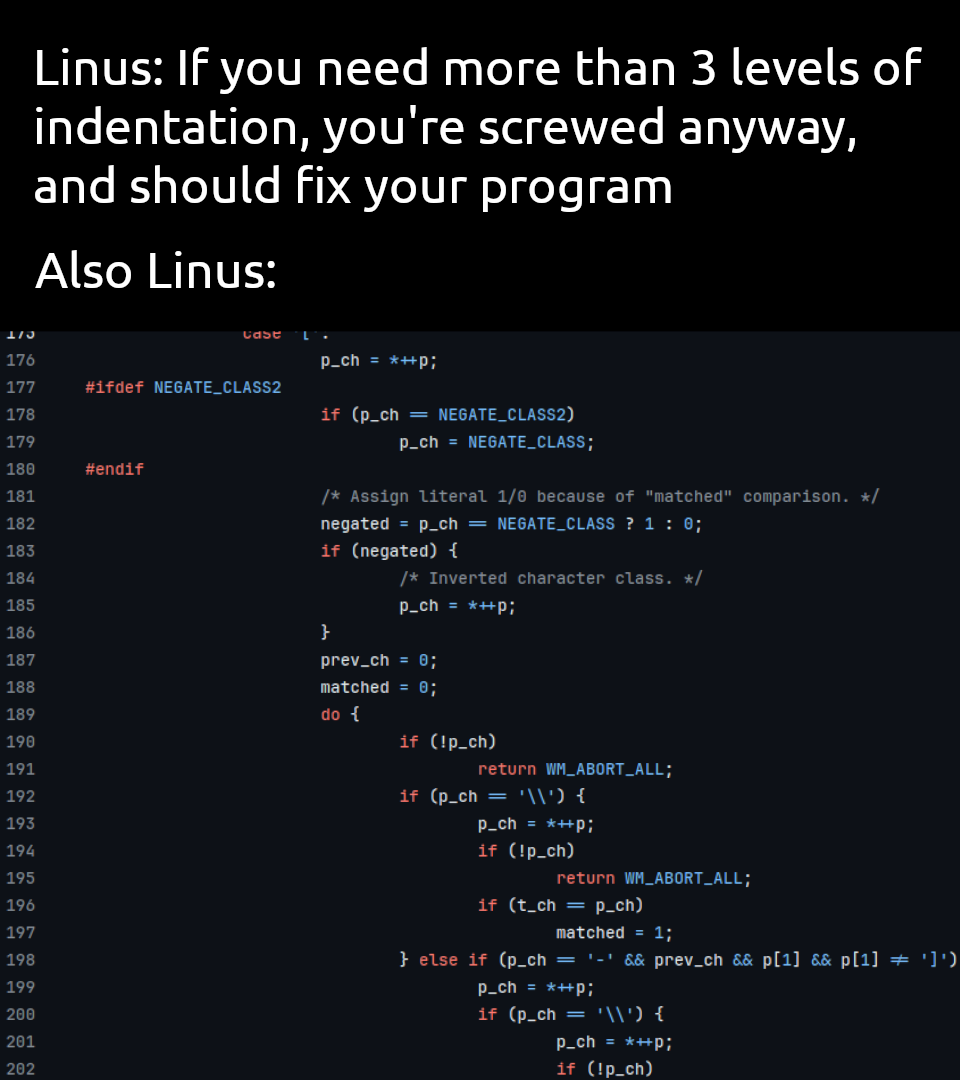this post was submitted on 09 May 2024
12 points (92.9% liked)
Programmer Humor
32571 readers
455 users here now
Post funny things about programming here! (Or just rant about your favourite programming language.)
Rules:
- Posts must be relevant to programming, programmers, or computer science.
- No NSFW content.
- Jokes must be in good taste. No hate speech, bigotry, etc.
founded 5 years ago
MODERATORS
you are viewing a single comment's thread
view the rest of the comments
view the rest of the comments

I didn't know why, but *++p bugs me
welcome to C
Perhaps *(p += 1) will be to your liking?
++pwill increase the value and return the new valuep++will increase the value and return the old valueI think
p = p + 1is the same asp++and not as++p. No?(p += 1) resolves to the value of p after the incrementation, as does ( p = p + 1).
Yes.
p++==p+= 1==p = p + 1are all the same if you use it in an assignment.++pis different if you use it in an assignment. If it's in its own line it won't make much difference.That's the point I was trying to make.
No.
++p returns incremented p.
p += 1 returns incremented p.
p = p + 1 returns incremented p.
p++ returns p before it is incremented.
Much better... but can we make it
*((void*)(p = p + 1))?How about some JavaScript
p+=[]**[]?That
*++operator from C is indeed confusing.Reminds me of the goes-to operator:
-->that you can use as:That's not a real operator. You've put a space in "i--" and removed the space in "-- >". The statement is "while i-- is greater than zero". Inventing an unnecessary "goes to" operator just confuses beginners and adds something else to think about while debugging.
And yes I have seen beginners try to use <-- and --<. Just stop it.